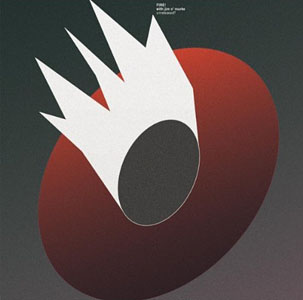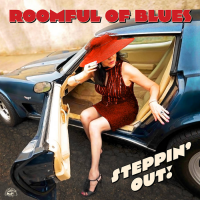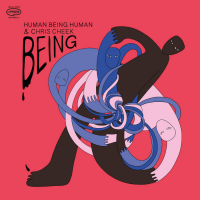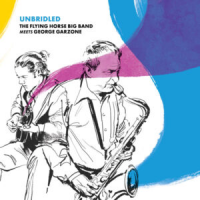Home » Jazz Articles » Reassessing » Ornette Coleman: Ornette Coleman: Change Of The Century
Ornette Coleman: Ornette Coleman: Change Of The Century
 Ornette Coleman
Ornette ColemanChange Of The Century
Atlantic
1959
Change Of The Century was an audacious album title, to say the least. On his second Atlantic release—and second with his most like-minded ensemble (trumpeter Don Cherry, bassist Charlie Haden and drummer Billy Higgins)—alto saxophonist Ornette Coleman pushed the freedom principal farther. At the same time, he looked backward too for inspiration. Having eliminated the piano on his Contemporary release, Tomorrow Is The Question! (1959), Coleman opened up wide improvisational opportunities. On that recording, he and his "freedom principle" remained partially inhibited by the presence of traditionalist bassist Percy Heath and drummer Shelly Manne, who resisted coloring outside of the lines as Coleman was attempting to do. But that was not so on The Shape Of Jazz To Come (Atlantic, 1959) and Change Of The Century. While the rhythm section continued to provide enough cohesive swing to propel matters, Coleman and Cherry stretched the melodic boundaries without the previous harmonic anchors.
Change of the Century is compelling in its embrace of contrasts. "Ramblin'" is funky organic, almost early rock and roll. Haden plucks and strums his way through a fractured 12-bar format that never fully resolves itself into the comfort of the anticipated. Coleman's solo over Haden's support is bar-walking rhythm and blues, lowdown and dirty, smelling of beer and Lucky Strikes. Cherry plays his famous pocket trumpet, sounding closer to Lee Morgan than anyone else, squeezing out hard bop lines like sparks from a metal lathe. Haden solos using the figures he has supported the whole piece with. His intonation is middle-of-the-note, relaxed and slightly wooden. "Ramblin'" retains an erstwhile harmonic structure, albeit only barely.
The head of "Free" is an odd premonition for composer/saxophonist Oliver Nelson's "Hoedown" from The Blues and the Abstract Truth (Impulse!, 1961), passing through an ascending and descending blues figure. Haden is rock solid throughout, even when the solo-going gets ragged and frayed. Higgins' accents are as potent as pepper, shoring up the edges of chaos on the briskly-timed piece. "The Face Of Bass" gives prominence to Haden while at the same time sounding strangely traditional for an album entitled Change of the Century. But it is a facade. Coleman encourages a careful abandon in the piece's overall structure and arrangement. Cherry pops on his solo, sometimes sounding like Freddie Hubbard, sometimes, Art Farmer.
"Forerunner" pretends that it is bebop, with a serpentine head and a deft drum break by Higgins. Coleman's solo is inspired, quenched in gospel and the blues. His tonal expanse is as big as his native Texas, informed by the many great tenor saxophone players from that state. Cherry emerges assertive, playing with swagger and attitude. So well constructed and delivered is his solo that it is easy to forget that a move toward a freer musical system is in the works. Haden remains stalwart in time-keeping, shepherding everything between the rhythmic ditches. The same can be said for the Charlie Parker-inspired "Bird Food," which is surveyed at a fast clip over a complex note pattern.
"Una Muy Bonita" is only passing Latin, with pianist Thelonious Monk phrasing and side- winding playing. Haden sets up a familiar clave beat with strummed chords. Coleman stages the piece to more insinuate a Latin vibe than to actually play one. After a lengthy introduction, Cherry solos muted, allowing himself a broad swath over which to play. The disc's closer, the title tune, was the most fully-realized "free jazz" at that point from Coleman. It is a wild phantasm of notes that are to "free jazz" what trumpeter Dizzy Gillespie's "Bebop" was for that virtuosic genre. It is a clarion call played on impulse. Yes, finally things are really beginning to come apart at the seams, properly foreshadowing Free Jazz: A Group Improvisation (Atlantic, 1961). Coleman has fully gained his traction and is now ready.
Tracks: Ramblin'; Free; Face Of The Bass; Forerunner; Bird Food; Una Muy Bonita; Change Of The Century.
Personnel: Ornette Coleman: alto saxophone; Don Cherry: pocket trumpet; Charlie Haden: bass; Billy Higgins: drums.
Tags
Ornette Coleman
Reassessing
C. Michael Bailey
United States
Don Cherry
Charlie Haden
Billy Higgins
Percy Heath
Shelly Manne
lee morgan
Oliver Nelson
Freddie Hubbard
Art Farmer
Charlie Parker
Thelonious Monk
Dizzy Gillespie
PREVIOUS / NEXT
Support All About Jazz
 All About Jazz has been a pillar of jazz since 1995, championing it as an art form and, more importantly, supporting the musicians who make it. Our enduring commitment has made "AAJ" one of the most culturally important websites of its kind, read by hundreds of thousands of fans, musicians and industry figures every month.
All About Jazz has been a pillar of jazz since 1995, championing it as an art form and, more importantly, supporting the musicians who make it. Our enduring commitment has made "AAJ" one of the most culturally important websites of its kind, read by hundreds of thousands of fans, musicians and industry figures every month.




















